H. G. Wells wrote his novel The Time Machine in 1895. His great-grandson, Simon Wells, managed to butcher this beautiful legacy a hundred and seven years later (2002), with the homonym Warner Bros. motion picture.
Not that the film deserves much attention; however, such a violent and unnecessary outrage moves to some reaction. Sorry, but I am reacting.
Although the great-grandson’s film keeps the core elements and relationships of the novel (perhaps the only thing that accounts for keeping the famous title as well), it chooses to completely deviate from the original plot. This, in itself, shouldn’t be questionable. I think it’s absolutely valid to do so provided the adapter adds new meaning that can establish a ‘dialogue’ with the first work, a conversation that may render new knowledge or cast a new light on the topics or issues treated by the original work. The problem is that deciding on a new path to an old story constitutes an extra risk for a screenwriter or filmmaker whose narrative talent is poor.
A natural prerequisite to any real dialogue is that those who are to face the task of dialoguing consider themselves as valid interlocutors. It’s hard to grant such a grace to a film which worries more about the plain action than about the philosophical and logical ideas underlying the original work. I felt the great-grandson’s film assaults the great-grandfather’s novel rather than establishing any dialogue with it. The changes to the original seem more oriented to enhance the standard elements of mainstream taste rather than to deepen in the social and scientific implications of the story. Some of these additions could be the following:
- In the film, the main character is in love and the tragic death of his fiancée sets him to find a way to alter past events. In the original, only scientific curiosity moves the character’s actions.
- In the film, the Eloi are a primitive but active community, something that allows the character to freely interact through dialogue with them. In the original, the Eloi are a passive, indolent race, and the character rather despises them.
- The Eloi from the film live in spectacular, beautifully ornamented caves in a cliff instead of the old decayed buildings of the novel.

- The Eloi girl of whom the main character gets fond is, in the film, a smart, exotic beauty with strong will, rather closer to an Amazon than to the dull, apathetic Eloi girl from the novel.
- In the film, this girl has a little brother who also interacts with the main character.
- Unlike the Eloi from the novel, those in the film are not passively induced to go into the hands of the Morlocks. Instead, the Morlocks carry out violent hunts.
- The Morlocks have a master, who controls their mind and verbally interacts with the main character (giving all the necessary explanations that the film can’t deliver in another way).

Together with this, the great-grandson's version also shows a feeble logic, which definitely places a barrier between the film and the novel, rendering any ‘dialogue’ impossible. It’s worth wondering, for instance, if it could be possible to travel to the past, to interact with people from the past, to generate new events, and still claim that we can’t change the past. Or to shatter the moon to pieces by mistake due to mining operations. Or to have, 800,000 years in the future, a society which has their own language and no care for the past, but goes on learning English from carved rocks (mysteriously acquiring a neat American pronunciation[1]). Or to have a physical and intellectually active community passively accepting the assaults of strong but seemingly unintelligent beasts. And so...
I’d like to finish this long diatribe by mentioning four aspects from the novel that the film leaves aside or doesn’t provide with a convincing alternative:

All in all, this is a film I wouldn’t recommend, unless to those who are interested in comparisons. There is, as well, a famous 1960 film directed by George Pál that stays somewhat closer to the novel and which gives some place to the sort of ‘dialogue’ I referred to. This film has become a classic and I feel it’s a valid adaptation. I do recommend this one. But my advice would be to read H.G. Wells’ novel before moving onto any of the films. It’s not by chance that it’s become one of the most important science-fiction books of all times.



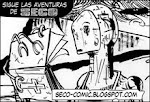
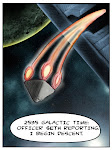




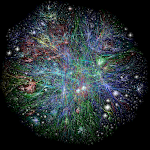
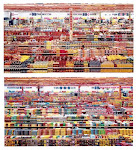


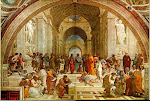


.gif)





